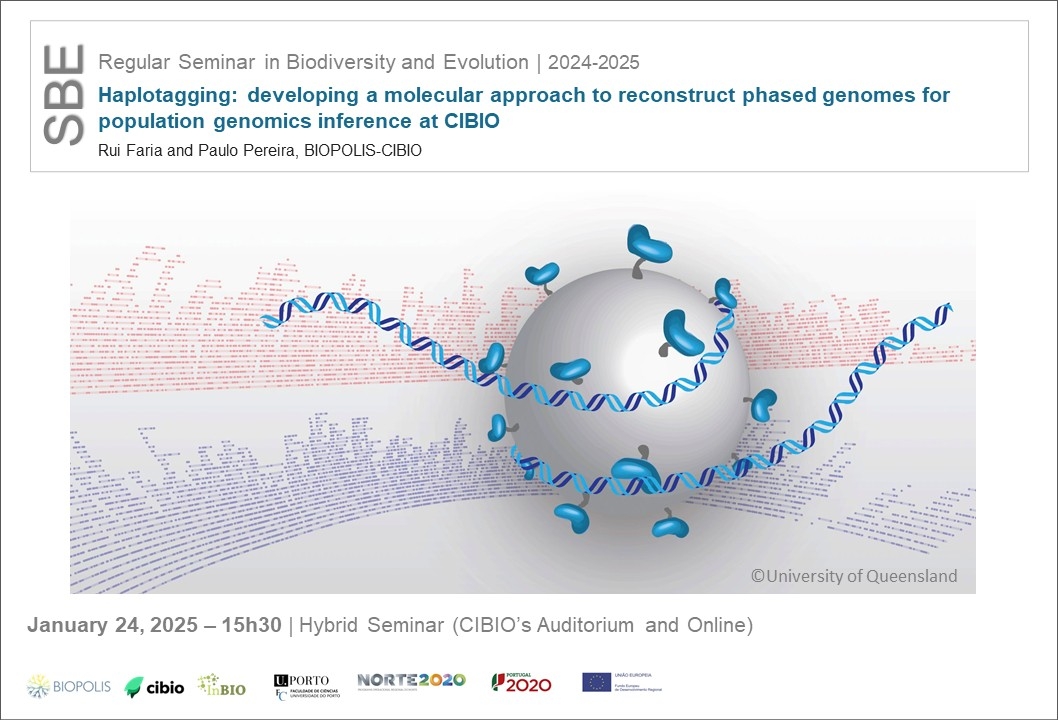Haplotagging: developing a molecular approach to reconstruct phased genomes for population genomics inference at CIBIO
Event
REGULAR SEMINAR IN BIODIVERSITY AND EVOLUTION
January 24th, 2025
Rui Faria and Paulo Pereira, BIOPOLIS-CIBIO | 15h30 | Hybrid Seminar

REGULAR SEMINAR IN BIODIVERSITY AND EVOLUTION
The data classically used in population genomics (SNP allele frequencies) summarizes information on genetic exchange between lineages and how it is reduced and eventually stopped between nascent species via various measures of similarity/differentiation between individuals or populations. This simplification leads to a significant loss of information limiting the potential of most inferences based on genomic sequences. This is especially true in the study of speciation, which by nature requires integrating genetic ancestry information to better reconstruct the history of divergence, measure gene flow, and quantify how genetic differences affect reproductive isolation across the genome.
The Ancestral Recombination Graph (ARG) provides an ideal framework for exploiting the totality of genetic ancestry information contained in a sample of genome sequences. However, the transition to an ARG-based analysis requires haplotype phase information. To address this challenge, cost-effective haplotagging protocols have been recently generated in order to circumvent the limitations associated with classic short-read data, and as an alternative to costly long-read sequencing.
In this seminar, we will present a collaborative project (ARG2EVOL) between ISEM and CIBIO, led by Pierre Alexandre Gagnaire (ISEM), who is implementing a protocol for low-cost reconstruction of fully phased genomes in population samples and associated bioinformatics pipeline in Montpellier. We will discuss the possibility of implementing this approach in CIBIO laboratories in line with the knowledge-transfer goals of the BIOPOLIS teaming project.
Rui Faria is an evolutionary biologist researcher primarily focused on studying evolutionary genomics of adaptation and speciation. In particular, he is interested in understanding the role of chromosomal rearrangements in adaptation and reproductive isolation using Littorina species (marine Gastropod) as model system. He is leading the research group SEAGEN (Seascape Genomics and Speciation) at CIBIO-BIOPOLIS since 2024.
Paulo Pereira is a postdoc both in EVOLGEN (Evolutionary Genetics and Genomics) and SEAGEN in CIBIO-BIOPOLIS and he is interested in understanding the mechanism through which regulatory changes contribute to phenotype evolution. Of particular interest is how epigenetically encoded information (e.g., DNA methylation; 3D genome configuration) contributes to the evolution of new phenotypes and, therefore, contributes to adaptation.
[Host: Rui Faria, Seascape Genomics & Speciation - SEAGEN]
